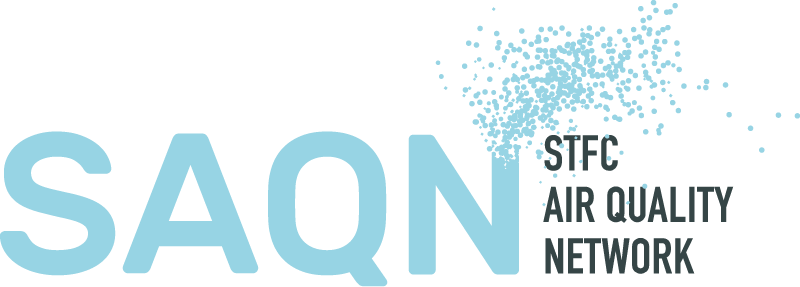Travel Grant recipient Phoebe Cullen Travel Grant recipient Jessie Gould SAQN offers Travel Grants for activity that will enable network members to build collaborations, make new connections, take advantage of STFC capabilities and assist them in proposal development. Students Phoebe Cullen, from the University of Leeds, and Jessie Gould, from the University of Bristol, were … Continue reading SAQN Travel Grant Report: Phoebe Cullen (with Jessie Gould)
SAQN Travel Report: Harriet Jones
Harriet Jones SAQN offers Travel Grants for activity that will enable network members to build collaborations, make new connections, take advantage of STFC capabilities and assist them in proposal development. In this feature, Harriet Jones discusses her experience at the Engineering Turbulence Modelling and Measurements (ETMM14) conference in Barcelona, where she delivered a poster presentation … Continue reading SAQN Travel Report: Harriet Jones
SAQN Toxicology Tours of Harwell Campus
On the 14th and 15th of June 2023, members of the STFC Air Quality Network gathered at the Harwell Science and Innovation Campus in Oxfordshire for a Toxicology Tour, showcasing the applications of some of the STFC facilities to this field. Toxicology was identified early on as an area of need in air quality research … Continue reading SAQN Toxicology Tours of Harwell Campus
SAQN Travel Grant Report: Harriet Jones
Travel Grant recipient Harriet Jones SAQN offers Travel Grants for activity that will enable network members to build collaborations, make new connections, take advantage of STFC capabilities and assist them in proposal development. Harriet Jones was awarded a grant to deliver a paper at an international conference about her work with STFC Scientific Computing Department … Continue reading SAQN Travel Grant Report: Harriet Jones
Access Call to OCTOPUS and ULTRA Now Open
Applications for access to the Octopus and Ultra facilities of the Central Laser Facility (CLF) in the Research Complex at Harwell are now open. These facilities offer exceptional research capabilities into biological samples, as detailed in our 'Introduction to CLF' training session. Successful applications from academics gain free access to conduct experiments at the facility, … Continue reading Access Call to OCTOPUS and ULTRA Now Open
Guest Blog: UK ammonia emissions determined with satellite observations and the GEOS-Chem model
We're pleased to welcome a guest blog post from Dr Eloise Marais, University College London, regarding her latest research on ammonia emissions. UK agricultural emissions of ammonia negatively impact human and ecosystem health by forming fine particles (PM2.5) and offsetting the natural nitrogen balance of aquatic and terrestrial ecosystems. There are few direct policies regulating … Continue reading Guest Blog: UK ammonia emissions determined with satellite observations and the GEOS-Chem model
International Collaboration without the Pollution
One of the few benefits of the Covid-19 pandemic has been the shift in culture around meetings. Many of us have seen the advantages of meeting virtually, being cheaper, convenient and representing a huge cut in carbon footprint and air pollution emissions. Developing new collaborations with international colleagues in a virtual space is more challenging, … Continue reading International Collaboration without the Pollution
SAQN Featured on ‘101 jobs that change the world’
UKRI have launched a campaign called ‘101 jobs that change the world’ focused on the people who work, often behind the scenes, to make research and innovation happen. This aims to publicise the many different and diverse roles and career paths in research and innovation that go beyond the traditional image of an academic, researcher … Continue reading SAQN Featured on ‘101 jobs that change the world’
Lessons learned from our Collaboration Building Workshops
Collaboration Building Workshop 2021 SAQN hosted a second Collaboration Building Workshop in 2021 (14 - 25 June), using the same format as the first workshop, but with improvements identified through the review process. Here we reflect on the impact these changes had on the process. Launch event We began the workshop with a brief ‘launch … Continue reading Lessons learned from our Collaboration Building Workshops
Running a Funding Sandpit in a Digital Environment: A Case Study
Our next Collaboration Building Workshop takes place this month, and we've been reflecting on what we learned from the first workshop, which took place last November. Online events are likely to be more prevalent, even once lockdown restrictions are gone, so we have published a case study of our workshop. The paper outlines some of … Continue reading Running a Funding Sandpit in a Digital Environment: A Case Study
